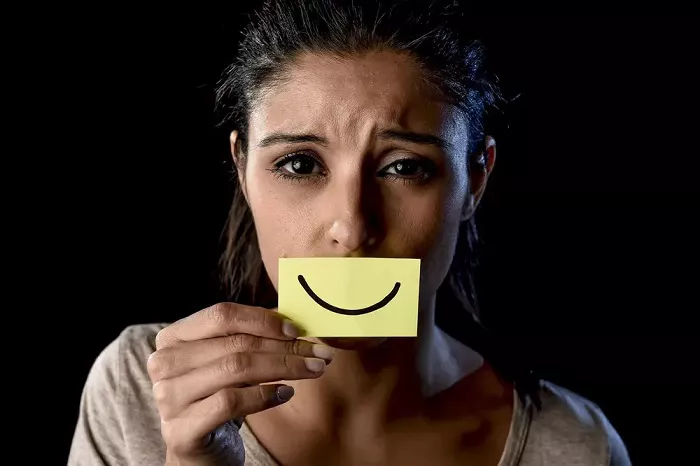Depression is a serious mental health condition that affects millions of people worldwide. Many individuals wonder whether those struggling with depression can ever experience genuine happiness again. The answer is yes, but the path to happiness is often complex and requires understanding, effort, and proper support.
This article explores the relationship between depression and happiness, examining how depression affects emotional experiences and what steps can help individuals rediscover joy. We will discuss scientific insights, therapeutic approaches, and practical strategies to improve well-being.
Understanding Depression and Its Impact on Happiness
What Is Depression
Depression is not just temporary sadness. It is a persistent mental health disorder characterized by deep emotional pain, cognitive distortions, and physical symptoms. Common signs of depression include:
- Persistent sadness or emptiness
- Loss of interest in previously enjoyable activities
- Fatigue and low energy levels
- Difficulty concentrating or making decisions
- Feelings of guilt or worthlessness
- Changes in sleep patterns and appetite
Because depression alters brain function and emotional processing, many people with this condition struggle to feel happiness, even in situations that would normally bring joy.
Can People with Depression Experience Happiness
Yes, individuals with depression can still feel happiness, but the experience may be different. Research suggests that depression affects how the brain processes positive emotions. People with depression may:
- Have weaker responses to positive stimuli
- Struggle to sustain positive emotions
- Focus more on negative thoughts than positive ones
However, this does not mean happiness is permanently lost. The brain has neuroplasticity, meaning it can adapt and change. With proper treatment and coping strategies, people with depression can regain the ability to feel joy.
How Depression Disrupts Happiness
Brain Chemistry and Emotional Processing
Depression is linked to imbalances in neurotransmitters such as serotonin, dopamine, and norepinephrine. These chemicals regulate mood, motivation, and pleasure. When they are disrupted:
- Positive experiences may not feel rewarding
- Negative thoughts become more dominant
- Motivation and energy levels drop
Antidepressant medications can help restore chemical balance, making it easier for individuals to experience happiness.
Cognitive Distortions and Negative Thinking
Depression often involves distorted thought patterns. People may engage in:
Overgeneralization: “Nothing ever goes right for me.”
Catastrophizing: “If I fail at this, my life is over.”
Discounting positives: “I succeeded, but it was just luck.”
Cognitive Behavioral Therapy (CBT) is highly effective in helping individuals recognize and change these negative thinking habits, allowing them to experience happiness more fully.
Emotional Numbness and Anhedonia
Many people with depression report feeling emotionally numb or unable to enjoy activities they once loved. This symptom, known as anhedonia, can make happiness seem distant. However, this does not mean the capacity for joy is gone forever. Therapy and gradual exposure to positive experiences can help rebuild emotional responsiveness.
Pathways to Rediscovering Happiness
Seeking Professional Treatment
The most effective way to combat depression and restore happiness is through professional help. Key treatment options include:
Psychotherapy: Approaches like CBT, interpersonal therapy, and mindfulness-based therapies help individuals reframe negative thoughts and develop healthier emotional responses.
Medication: Antidepressants can correct chemical imbalances, making it easier to experience positive emotions.
Combined Treatment: Many people benefit from a combination of therapy and medication for long-term recovery.
Developing Healthy Lifestyle Habits
Small, consistent changes in daily habits can significantly improve mood over time. Important lifestyle adjustments include:
Regular Exercise: Physical activity boosts endorphins, which naturally enhance mood.
Proper Sleep Hygiene: Poor sleep worsens depression, so maintaining a consistent sleep schedule is crucial.
Balanced Nutrition: A diet rich in omega-3s, vitamins, and minerals supports brain health and emotional stability.
Strengthening Social Connections
Isolation deepens depression, while social support fosters recovery. Even small interactions, such as talking to a friend or joining a support group, can help individuals feel more connected and valued.
Practicing Mindfulness and Gratitude
Mindfulness techniques help individuals stay present, reducing excessive focus on negative thoughts. Gratitude journaling, where people write down things they appreciate each day, can gradually shift attention toward positive experiences.
Setting Achievable Goals
Depression often makes tasks feel overwhelming. Setting small, realistic goals—such as taking a short walk or completing a simple task—can build confidence and create a sense of accomplishment, contributing to happiness.
Is Lasting Happiness Possible for People with Depression
Happiness is not a permanent state for anyone, with or without depression. Emotional fluctuations are normal. The goal for individuals with depression is not to eliminate all negative emotions but to:
- Reduce the intensity and frequency of depressive episodes
- Increase the ability to enjoy positive moments
- Develop resilience to cope with challenges
With proper treatment and self-care, many people with depression regain the ability to experience happiness, love, and fulfillment.
Conclusion
Depression can make happiness feel distant, but it does not erase the possibility of joy. Scientific research and clinical experience show that with the right interventions—therapy, medication, lifestyle changes, and social support—individuals with depression can and do experience happiness again. Recovery is a gradual process, but each step forward brings hope and healing.
If you or someone you know is struggling with depression, reaching out for professional help is the most important step toward reclaiming happiness. Remember, healing is possible, and brighter days can lie ahead.
Related topics:
- How To Overcome Depression Without Therapy?
- Supporting Someone with Depression: What to Do & What to Avoid
- How To Get Motivated To Workout When Depressed?


